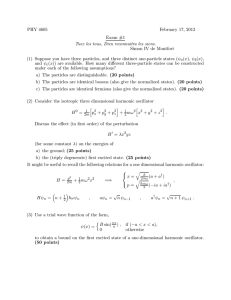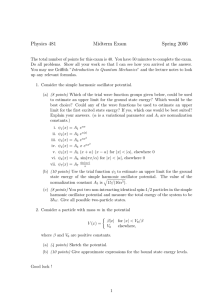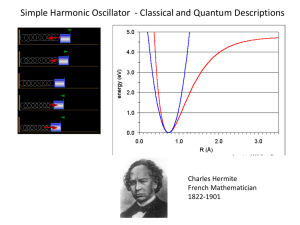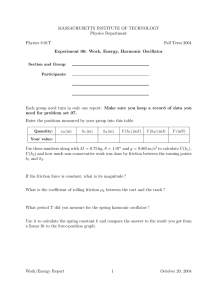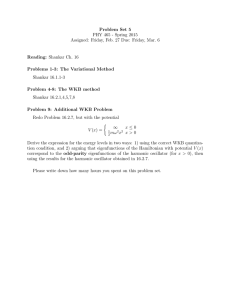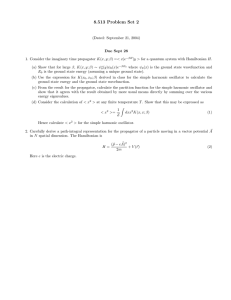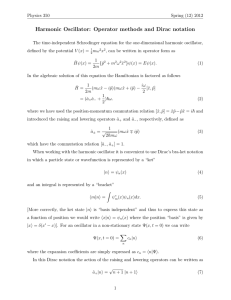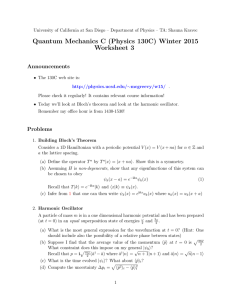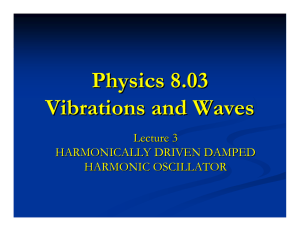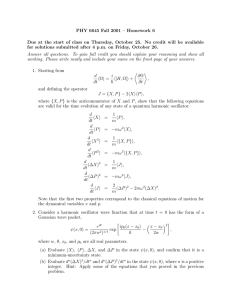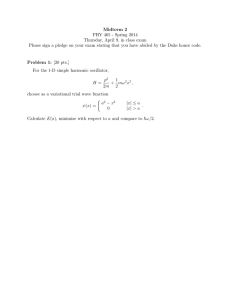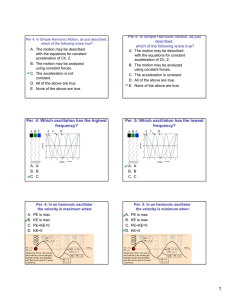PHY 4605 February 22, 2010 Exam #1
advertisement
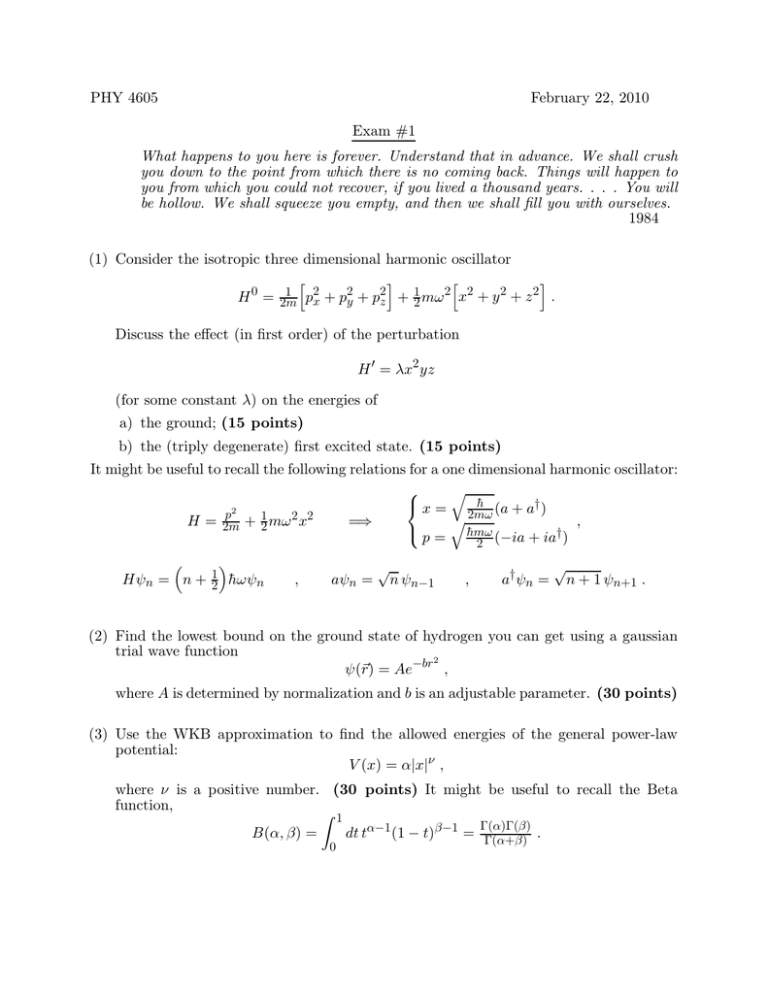
PHY 4605 February 22, 2010 Exam #1 What happens to you here is forever. Understand that in advance. We shall crush you down to the point from which there is no coming back. Things will happen to you from which you could not recover, if you lived a thousand years. . . . You will be hollow. We shall squeeze you empty, and then we shall fill you with ourselves. 1984 (1) Consider the isotropic three dimensional harmonic oscillator i h h i 2 2 2 2 2 2 2 0 1 1 H = 2m px + py + pz + 2 mω x + y + z . Discuss the effect (in first order) of the perturbation H ′ = λx2 yz (for some constant λ) on the energies of a) the ground; (15 points) b) the (triply degenerate) first excited state. (15 points) It might be useful to recall the following relations for a one dimensional harmonic oscillator: q h̄ (a + a† ) x = 2mω p2 q H = 2m , + 21 mω 2 x2 =⇒ p = h̄mω (−ia + ia† ) 2 Hψn = n + 21 h̄ωψn , aψn = √ n ψn−1 , a † ψn = √ n + 1 ψn+1 . (2) Find the lowest bound on the ground state of hydrogen you can get using a gaussian trial wave function 2 ψ(~r) = Ae−br , where A is determined by normalization and b is an adjustable parameter. (30 points) (3) Use the WKB approximation to find the allowed energies of the general power-law potential: V (x) = α|x|ν , where ν is a positive number. (30 points) It might be useful to recall the Beta function, Z 1 Γ(α)Γ(β) B(α, β) = dt tα−1 (1 − t)β−1 = Γ(α+β) . 0
